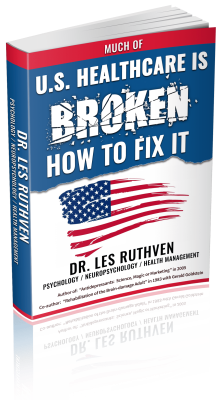Last updated on January 6th, 2024 at 08:34 am
The behavioral health management industry as a whole endorses the “medical model” for behavioral health problems, that is, the disease model of general is transferred to mental health. In the medical model, mental health problems are seen as diseases for which medication is the primary, if not the exclusive, treatment.
Scientific research shows that medication is indispensable in the treatment of some mental disorders, such as schizophrenia, correctly diagnosed bipolar disorder, and correctly diagnosed cases of Attention Deficit Disorder. The vast majority of those who seek treatment, the 50% to 60% or so with depression and stress/anxiety problems, are treated most effectively with cognitive-behavioral psychotherapy rather than medication.
The chemical view of depression is so common that it has become the politically correct view, a belief so engrained in society that it does not have to be supported by any evidence. Increasingly, patients tell us they do not have depression — they have a chemical imbalance in the brain. There is simply no support in the scientific literature for the disease model of depression and using drugs for the first line of treatment for either anxiety or depression.
From the scientific literature on treating depression:
Antidepressants are not superior to placebos in treating depression.
In controlled studies, 30% of the clinically depressed show full recovery on the basis of placebo effects alone.
Researchers reviewed 56 controlled studies and found psychotherapy (by trained professionals) to have about twice the effectiveness of antidepressants.
Psychotherapy alone is as effective in treating clinical depression as when it is combined with drugs.
Psychotherapy is less expensive than drugs in treating depression.
The above research does not support a “disease” model of depression, the widespread practice of using drugs alone, or favoring drugs over psychotherapy. Successful treatment of depression requires a change in one’s behavior and, frequently, a change in one’s thinking – hence the need for a trained psychotherapist and not just a pill.
When drug therapy is used to treat depression, patients are often advised to stay on medication for the rest of their lives at a cost of $80 to $100 per month. Yet there is a substantially higher relapse rate with drug therapy compared to psychotherapy, which teaches the patient strategies to prevent relapse.
The medical model promotes victimization (“you have poor brain chemistry”), promotes passivity (“take these pills twice a day”), and undermines the person’s responsibility for one’s behavior.
PMHM believes that all health outcomes are better when the patient is empowered with the information and tools to control their health.
Disease Model History
Much of medicine including psychiatry focuses on treating diseases with pharmaceuticals as the primary treatment – an antibiotic for an infection, insulin for diabetes, an antidepressant for complains of depressed mood. Unfortunately, this disease model has been transferred to the behavioral health industry as a whole with drugs regularly sued as the primary method to treat anxiety, mood, or behavior-related problems such as panic disorders, ADD, or depression. This drug-first approach is expensive and often ineffective.


